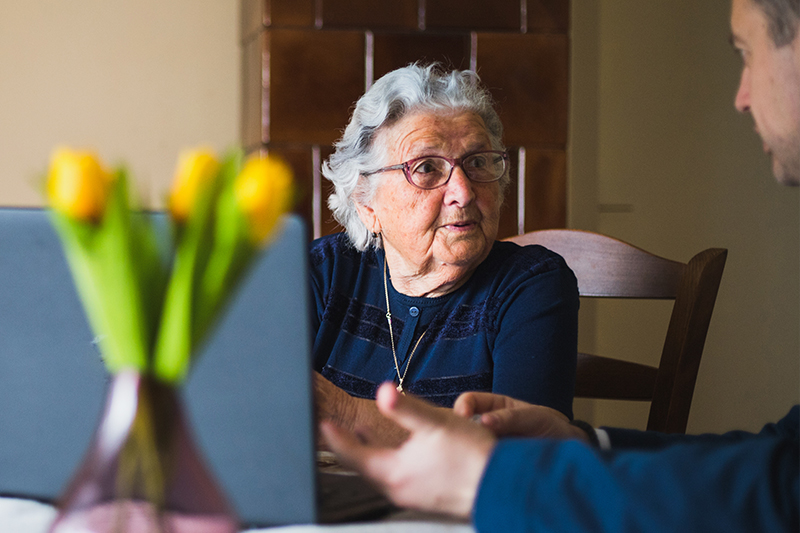Many of today’s older adults were raised in the Great Depression. They lived through a period when the country was cutting corners and pinching pennies. Frugality was embedded in many of them while very young and quite often remains firmly in place for life, often impacting senior finances throughout aging.
So what occurs when an older adult is in need of care at home, has the financial ability to afford care, but does not want to spend the money required for that care?
First, empathize. Understand that the person’s viewpoint is valid and based on past life experiences. If the senior seems to be reluctant to the notion of spending money for the care they need, remind yourself of the emotions behind the behaviors. An added layer of difficulty might be in simply accepting the need for care altogether, something which is far beyond mere frugality.
Spend some time shopping with the senior. Costs were far different years ago than they are today, for everything from a gallon of milk to a new car. In the event the older adult has not had the opportunity to go shopping lately, go online to show them current pricing for a variety of items. Or check out this inflation calculator that shows you the value of $100 between one year and another. (For instance, $100 in 1950 is the equivalent of $1,153.54 today!) This can help if a senior is experiencing “sticker shock” at the cost for care services.
Plan plenty of time for conversations. The choice to accept home care services is a life-altering one which often requires several conversations. Engage in discussions with a frugal senior concerning the cost-cutting measures they have proudly adhered to over the years. Utilize these strengths to compromise if needed on covering the cost for care needs. For instance, it could be that rather than full-time care, the older adult would accept a few hours of care every week for assistance with necessary tasks at home. After the person is comfortable with their caregiver and sees what a positive change home care makes, they may be more open to increasing services.
Additionally, it may be beneficial to engage the help of a third party – someone the older adult trusts, such as their attorney, religious leader, primary care physician, or a close friend. Engaging in a conversation with this particular person in regards to the benefits to be gained through a home care assistant can help reduce any concerns about cost.
When an older adult is ready to explore home care, connect with Amy’s Helping Hands, the experts in elder care in Windsor, Ontario and the surrounding areas, at 519-915-4370. We’ll be happy to discuss options with you that helps you find one that is most effective.















